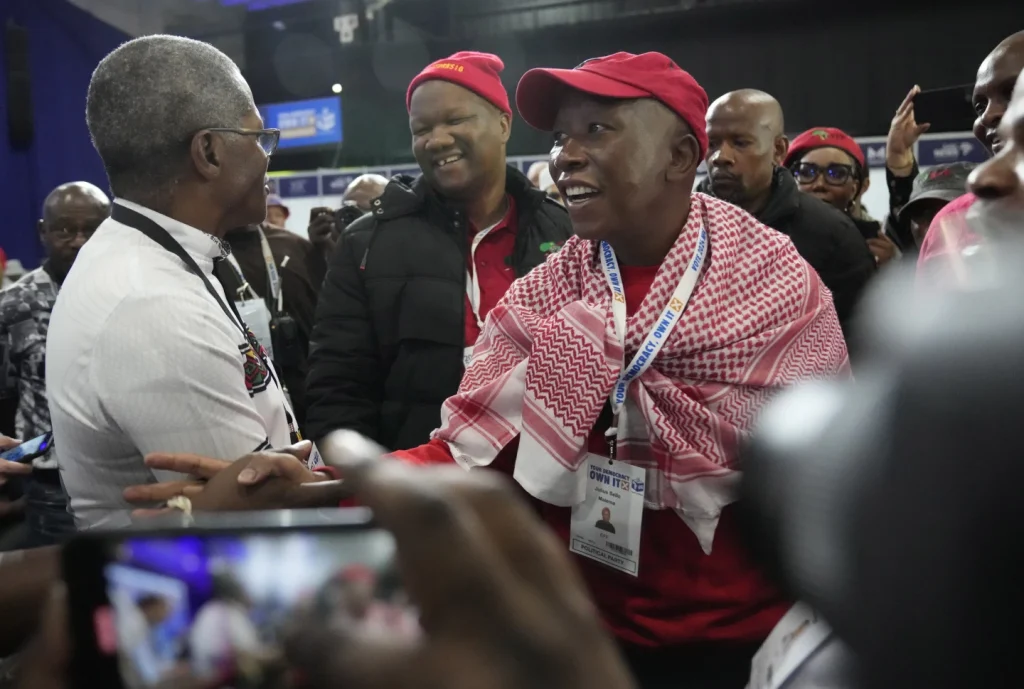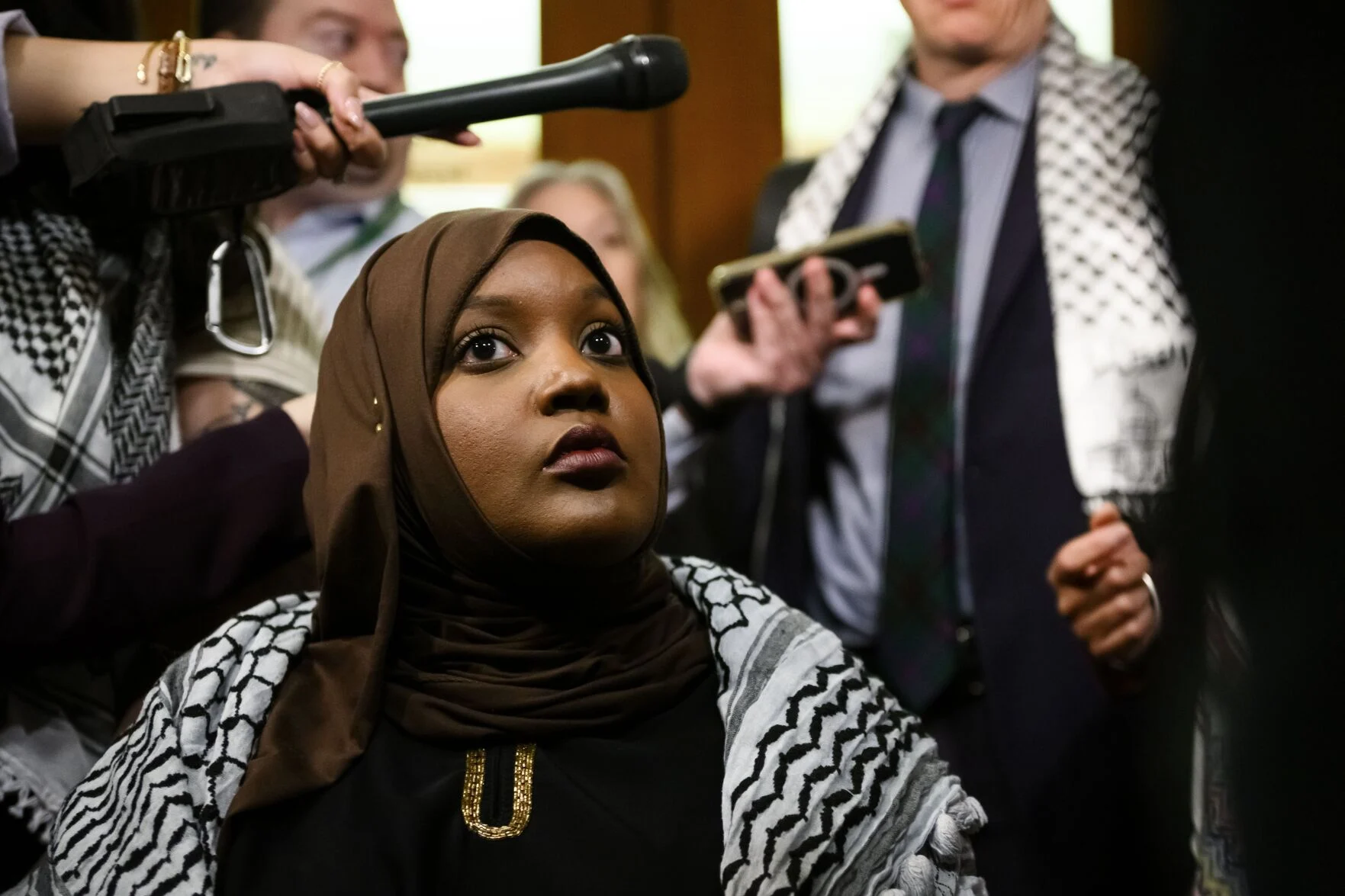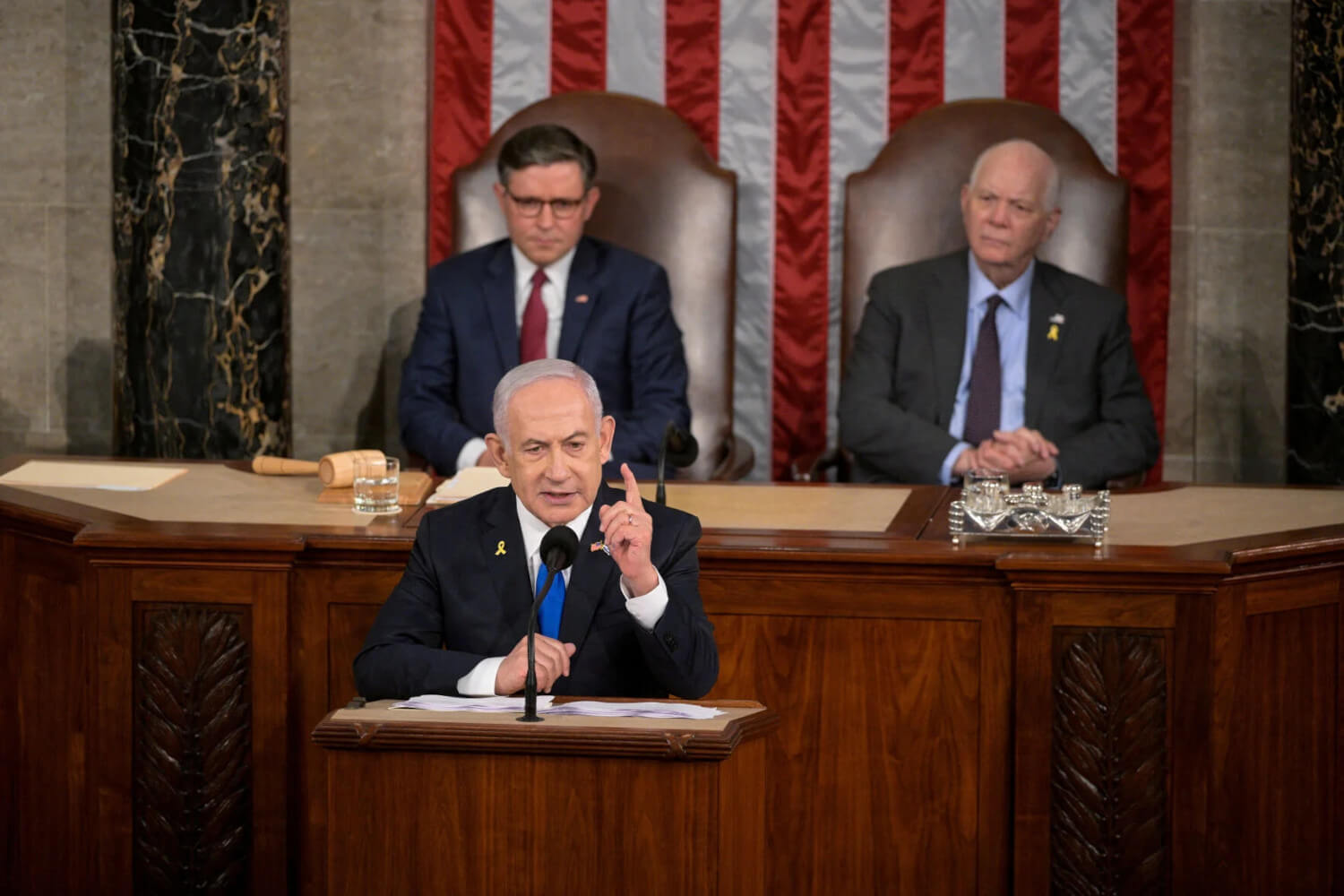South African opposition parties are engaged in critical discussions, set to continue into next week, to evaluate the ruling African National Congress’ (ANC) proposal for a government of national unity.
The ANC fell short of securing a majority in the recent fiercely contested election. However, some opposition parties have already dismissed the offer due to profound disagreements.
The Democratic Alliance (DA), the main opposition party, will convene a meeting on Monday to discuss their centrist party’s strategy for the negotiations. The Economic Freedom Fighters (EFF), a leftist party, held talks on Friday.
With a deadline of June 16 set by South Africa’s constitution, parties are under pressure to finalize negotiations and reach an agreement within 14 days of the election results announcement.
South African President Cyril Ramaphosa, the ANC leader, announced on Thursday the party’s decision to establish a government of national unity, inviting all parties to participate. This move is expected to be intricate given the significant divisions among the opposition parties themselves.
Opposition parties not only differ with the ANC on various socio-economic policies but are also sharply at odds with each other on economic issues like land redistribution and affirmative action.
ActionSA, an opposition party, has already declined to partake in the negotiations, stating they refuse to collaborate with the ANC.
In a move reminiscent of Nelson Mandela-led ANC’s path following the country’s first democratic election in 1994, the party has decided to invite numerous opposition parties to join the government.
While Mandela insisted on a unity government despite the ANC’s overwhelming majority win with nearly 63% of the national vote, the ANC’s current situation is a result of its worst-ever electoral performance. The party’s vote share dropped from 57.5% in 2019 to 40% this year, a 17.5% decline.
Following Ramaphosa’s announcement, the EFF’s leader, Julius Malema, rejected the proposal of a government of national unity on X, accusing the ANC of arrogance despite their failure to secure a majority.
The EFF, among the top five parties after the election with just over 9% of the national vote, is expected to play a crucial role in the negotiations’ outcome.
The arrogance continues even after the South African voters issued warning signs. You can’t dictate the way forward as if you have won elections,” Malema said. “We are not desperate for anything, ours is a generational mission. We can’t share power with the enemy.”
In 2023, the DA declared the Economic Freedom Fighters as their primary adversary.
The DA, with just over 21% of the national vote, remaining the second-largest party, will have its highest decision-making body, the Federal Council, meet on Monday to consider its options.
“I can’t say now what the position of the DA is, we have a whole negotiation team and we are meeting as the federal council on Monday. We will have a framework for negotiations that we will release this weekend,” DA federal chairperson Helen Zille said on Friday.
The Inkatha Freedom Party (IFP), the fifth-largest party with nearly 4% of the national vote, expressed willingness to join the government of national unity. However, they plan to discuss the matter with their party structures over the next few days.
In principle, the IFP is not averse to a GNU (government of national unity). However, the devil is in the details, which will become clearer in the coming days … enabling the IFP to make a well-considered decision,” IFP spokesman Mkhuleko Hlengwa said.
The uMkhonto weSizwe Party, led by former President Jacob Zuma, who left the ANC, is the latest to join the negotiations. The party confirmed on Thursday that they had begun talks with the ANC after initially failing to respond to the invitation.
The party has raised objections about the election results to the country’s electoral body, citing alleged voting irregularities and threatening to boycott the first sitting of Parliament to swear in the country’s new lawmakers.
Economists state that the markets are eagerly awaiting the outcome of the negotiations to understand the composition of the next government of Africa’s most developed economy and the economic policies it will pursue.










